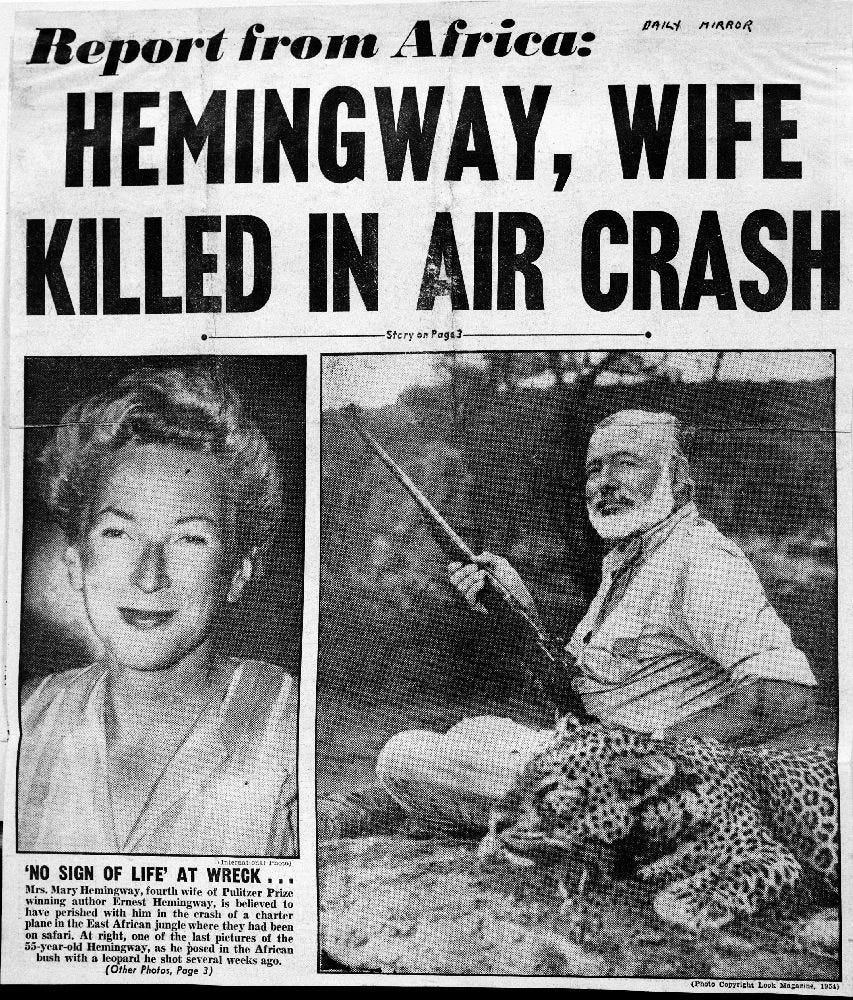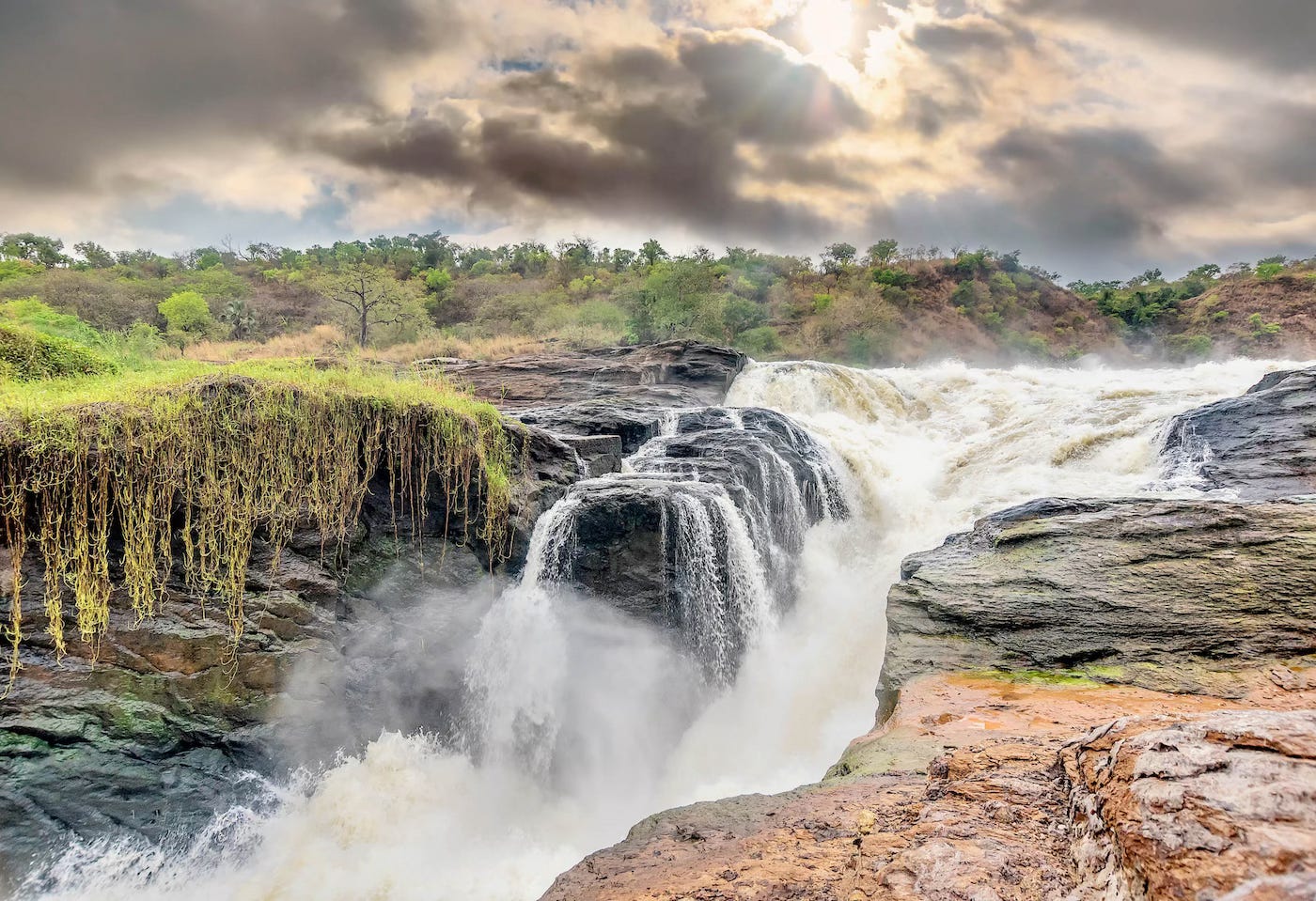Give that man an ice cream
A very enjoyable afternoon attending the birthday party for an eminent 99 year old whose younger sister was there too. Their combined age is 194.
In his celebratory speech, his son told a story that seems to me to provide another kind of mise en abyme – that of ‘nested events’ with a suitable ending of someone hoist on their own petard.
His father had been a District Commissioner in what was then a British colony in East Africa.
In 1954, the heir to one of England’s great estates arrived to take up the position of Game Ranger, responsible for issuing licenses for ‘big game’ hunting. The man was a hunter himself who fancied he was a crack shot. The District Commissioner accompanied the Ranger on the hunt for a lion.
The lion was tracked down and the Ranger took a shot, but only maimed the lion which ran off into the bush. The Ranger decided to follow with his rifle, intent on putting the lion out of its misery. But in the bush, the lion (quite understandably) attacked and injured the ranger.
In this moment of crisis, the Ranger’s gun bearer, a local, then raised his rifle to shoot the lion himself. Unfortunately he missed, instead shooting and killing the Ranger, depriving one of England’s great estates of its primogenitive heir.
The District Commissioner was left with the thorny problem of sorting out the legal issues involved.
Sitting on his mobility scooter, the father took off his hat and from its interior retrieved the text of his own speech in response to his son’s, looking at his watch and saying with his undiminished sense of humour, ‘It’s now three o’clock and my speech should be finished by four.’
He started to speak about his memories of his family, but soon paused and scanned the text. ‘I’m going to cut a lot of this out,’ he was heard to say, but he sat reading in silence before, with perfect timing, he said, ‘But it’s all very interesting though.’
We never did hear the redacted extract.
Don’t believe everything you read in the press
1954 proved to be a busy year. Another story, which the former District Commissioner told me himself some years ago, involved Ernest Hemingway. Newly married to his fourth wife Mary Welsh, Hemingway hired a plane to look at the Murchison Falls on the Nile, but it crash-landed. Hemingway wrote a short note about what had happened and pinned it to a tree. Hemingway and Mary were both injured but set off to find a way down to the river.
A local man found the note and ran all the way to the District Commissioner’s office to deliver the news. The DC promptly organised a search. In the meantime, Hemingway had hired another pilot to take them up again. On a little used wartime airstrip, termites had built a tall hill overnight and the plane crashed into it on take-off – the second time in two days the Hemingways had been involved in an air crash. This time they received more severe injuries. Sadly, the Nobel prize-winning author of For Whom the Bell Tolls, A Farewell to Arms and The Old Man and the Sea, suffered from its after effects. His mental and physical health went downhill, until his suicide five years later.
Though Hemingway spent only ten months in Africa, it left him with countless animal horns and rich material for his work. It also left him with a concussion, first-degree burns, crushed vertebrae, and a ruptured kidney, liver and spleen - injuries that probably contributed to his ill health later in life. (https://www.pbs.org/hemingwayadventure/africa.html)
The famous photographer Yousuf Karsh photographed Hemingway and Mary in Cuba in 1957.
I expected to meet in the author a composite of the heroes of his novels. Instead, in 1957, at his home Finca Vigía, near Havana, I found a man of peculiar gentleness, the shyest man I ever photographed - a man cruelly battered by life, but seemingly invincible. He was still suffering from the effects of a plane accident that occurred during his fourth safari to Africa. I had gone the evening before to La Floridita, Hemingway’s favorite bar, to do my ‘homework’ and sample his favorite concoction, the daiquiri. But one can be overprepared! When, at nine the next morning, Hemingway called from the kitchen, ‘What will you have to drink?’ my reply was, I thought, letter-perfect: ‘Daiquiri, sir.’ ‘Good God, Karsh,’ Hemingway remonstrated, ‘at this hour of the day!’
Here’s a detailed report on what happened by J R F Mills (1921-2013) who was Warden of Uganda National parks
When I check my writer’s notes, I find a note of a comment Hemigway makes in the Ken Burns documentary about his life:
‘A writer must come to his work like a priest to the altar’.
Write every day
My time at the altar this week has taken me from the completed sequence about retraining horses for the Western Front in the First World War, to a strafing attack by an Fw (Fokker Wulf) 190A-3 on a road in Somerset during World War Two.
Watch out for Nazis!
Wishing you smiles and enjoyment under your patch of sky, without any rioting by abysmals.
More of my ramble around mise en abyme next week.










